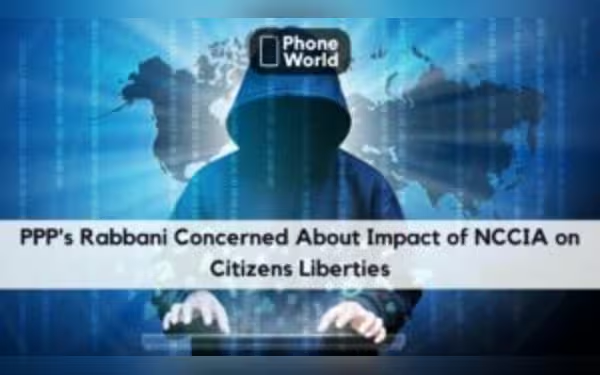Thursday, July 4, 2024 06:37 PM
Rabbani Criticizes NCCIA Formation
- PPP leader condemns NCCIA for potential privacy infringements
- NCCIA replaces inactive FIA Cyber Crime Wing, lacks transparency
- Government faces criticism for lack of consultation and transparency in NCCIA creation
 Image Credits: phoneworld_pk
Image Credits: phoneworld_pkThe establishment of the National Cyber Crime Investigation Agency (NCCIA) has sparked controversy, with PPP senior leader Mian Raza Rabbani strongly condemning its lack of transparency and potential privacy infringements. The government faces criticism for creating the NCCIA without consulting key stakeholders, raising concerns about digital rights and privacy protection.
The formation of the National Cyber Crime Investigation Agency (NCCIA) has sparked controversy, with PPP senior leader Mian Raza Rabbani strongly condemning its establishment. Rabbani raised concerns about potential infringements on citizens' personal liberties due to the NCCIA's broad mandate and lack of transparency.
The NCCIA was introduced by the government as a replacement for the inactive Cyber Crime Wing of the Federal Investigation Agency (FIA). The Ministry of Information Technology and Telecommunication officially notified the abolition of the FIA's cybercrime wing, citing legal provisions from the Prevention of Electronic Crime Act, 2016.
Rabbani criticized the government for creating the NCCIA without consulting digital rights groups, the IT sector, or the public. He emphasized the importance of safeguarding digital rights and privacy, calling for transparency and public confidence in governmental actions.
Despite facing strong opposition from Rabbani and concerns over potential surveillance and data gathering, the government has yet to clarify the specific objectives of the NCCIA. Rabbani urged the government to justify the necessity of the agency and ensure it does not lead to social media policing.
The establishment of the NCCIA has raised questions about the balance between combating cyber crimes and protecting citizens' rights. The lack of consultation and transparency surrounding the agency's formation highlights the need for a thorough review of its objectives and operations to ensure accountability and respect for digital rights.













